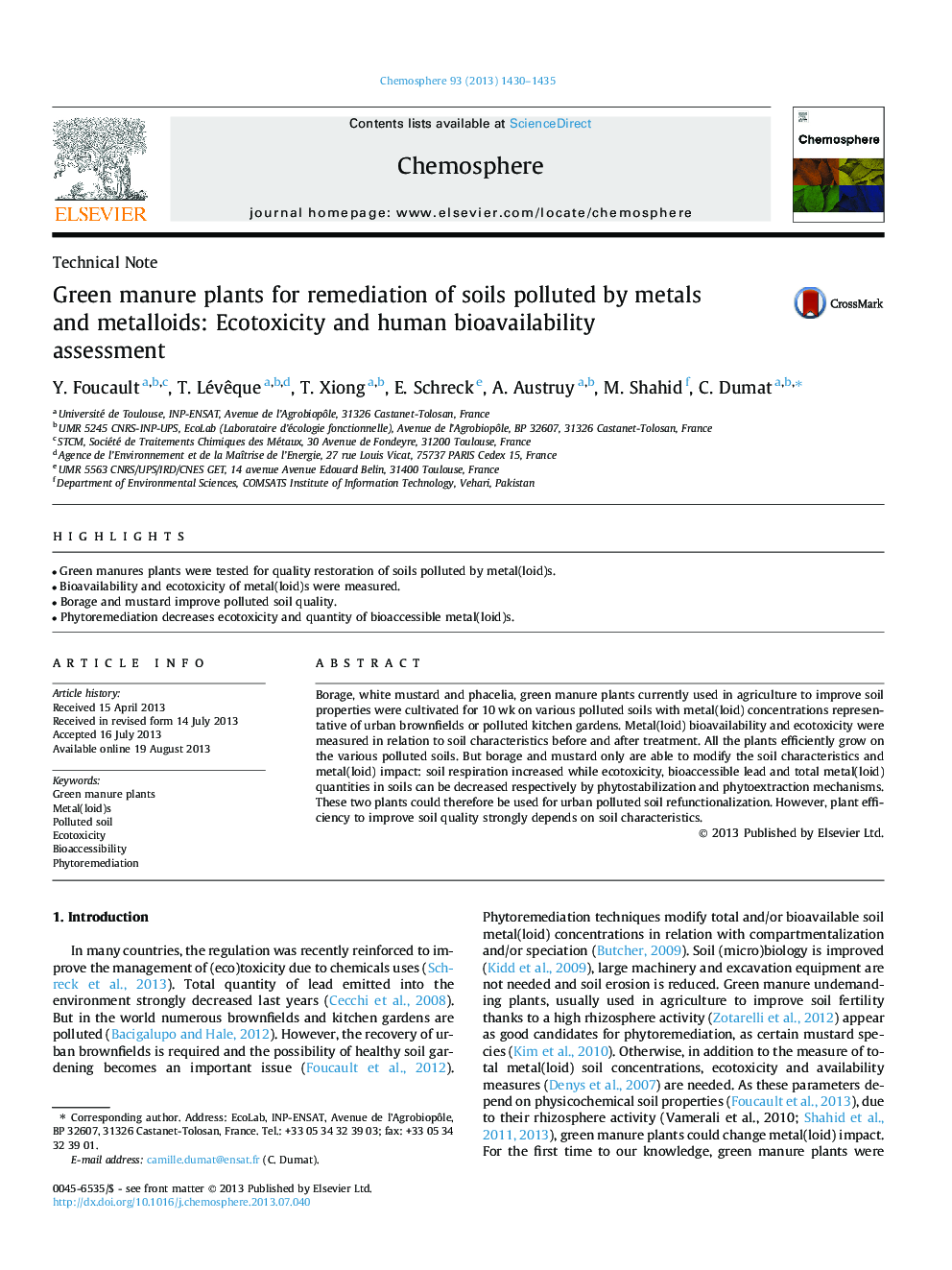| Article ID | Journal | Published Year | Pages | File Type |
|---|---|---|---|---|
| 4409204 | Chemosphere | 2013 | 6 Pages |
•Green manures plants were tested for quality restoration of soils polluted by metal(loid)s.•Bioavailability and ecotoxicity of metal(loid)s were measured.•Borage and mustard improve polluted soil quality.•Phytoremediation decreases ecotoxicity and quantity of bioaccessible metal(loid)s.
Borage, white mustard and phacelia, green manure plants currently used in agriculture to improve soil properties were cultivated for 10 wk on various polluted soils with metal(loid) concentrations representative of urban brownfields or polluted kitchen gardens. Metal(loid) bioavailability and ecotoxicity were measured in relation to soil characteristics before and after treatment. All the plants efficiently grow on the various polluted soils. But borage and mustard only are able to modify the soil characteristics and metal(loid) impact: soil respiration increased while ecotoxicity, bioaccessible lead and total metal(loid) quantities in soils can be decreased respectively by phytostabilization and phytoextraction mechanisms. These two plants could therefore be used for urban polluted soil refunctionalization. However, plant efficiency to improve soil quality strongly depends on soil characteristics.
